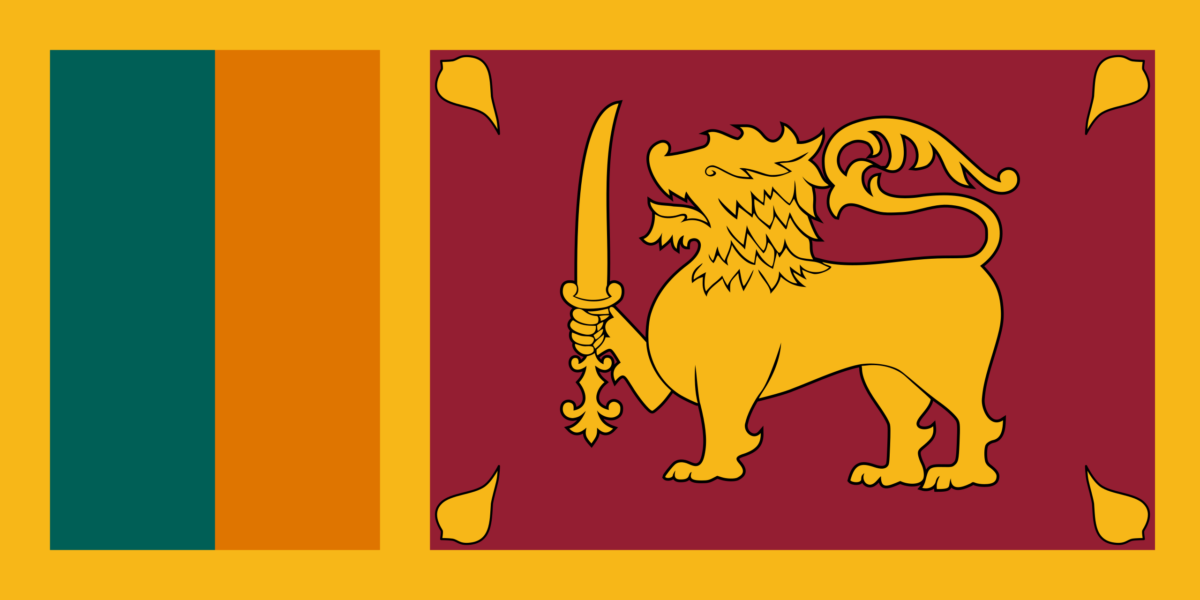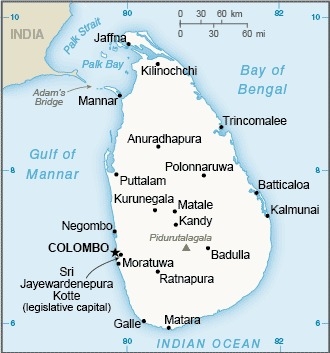Overview
The pearl-shaped island of Sri Lanka lies in the Indian Ocean, southwest of the Bay of Bengal, and is separated from the southern tip of its neighbour India by the Gulf of Mannar and the Palk Strait. Ceylon, as the Island was known for many years, has at different times come under Portuguese, Dutch and British rule. Independence was gained from Britain in 1948 and the name was finally changed to Sri Lanka (meaning ‘resplendent island’) in 1972.
The majority of Sri Lankans are ethnically Sinhalese Buddhist. On-going tensions between the government and the Tamils (in the north and east of the island) eventually led to a protracted civil war between 1983 and 2009. The so-called Tamil Tigers (full name: Liberation Tigers of Tamil Eelam) sought – unsuccessfully – for an independent state for the Tamil people (most of whom are Hindu). The Sri Lankan government has subsequently come under criticism for alleged human rights abuses during the conflict.
What it means to be a Christian in Sri Lanka
Buddhism is the majority religion in Sri Lanka (about 70% of the population), with Hinduism standing second at about 12%. Christians make up about 8%. Sri Lanka’s constitution upholds freedom of thought, conscience and religion while, at the same time, Buddhism is accorded the “foremost place” and the Sri Lankan government is required to protect Buddhism while, at the same time, respecting the rights of religious minorities.
In practice there has, in recent years, been a growing Buddhist nationalism in Sri Lanka that, in many respects, mirrors the Hindu nationalism of its neighbours India. This part-religious, part-political ideology combines Sinhalese culture and ethnicity with Theravada Buddhism. In the past there have been calls from some Sri Lankan politicians for a form of anti-conversion law to be created.
Persecution
On Easter Sunday in 2019 Sri Lanka was devastated by a series of bomb attacks on churches and hotels. More than 250 people were killed in the explosions, which were carried out by a local Islamist militant group with suspected ties to other Islamist organisations further afield. The news of the atrocity quickly spread around the world.
Terrible though this incident was, the reality is that when it comes to the persecution of Christians in Sri Lanka this attack was atypical: Christians in Sri Lanka have long been facing intimidatory violence from a different source; namely, militant Buddhists.
Christians have been attacked, Christian churches burned down and congregations and church leaders repeatedly threatened by Buddhists. In recent years a religious circular, related to the registration of places of worship, has been deliberately abused by Buddhists to try and force the closure of churches – and even to stop Christians meeting in one another’s homes for prayer.
Christians have faced legal difficulties in the burial of their dead and have regularly faced discrimination when applying for local school places for their children. In rural areas, in particular, intimidation is not uncommon, often involving Buddhist monks, and extending even to making it difficult for Christians to buy basic foodstuffs.
Release International work
Release International’s partner in Sri Lanka is involved in various projects seeking to support those who suffer intimidation and persecution for their Christian faith (Operation Ezra). One on-going project provides scholarship support for children from persecuted and marginalised families, providing spiritual support as well as helping the children with their education.
Our partner also works to equip Christian youth in Sri Lanka to be more resilient and proactive in their faith, in the face of pressure. Christian teachers who live and work in rural areas are supported.
Our partner also provides legal aid for Christians and churches, especially pastors from low-income backgrounds who are wrongfully implicated in legal matters by local Buddhists seeking to oppose Christian ministry and witness.

